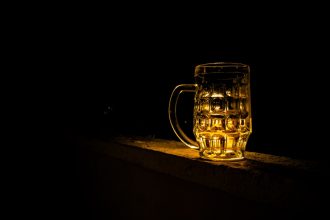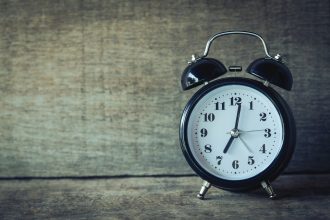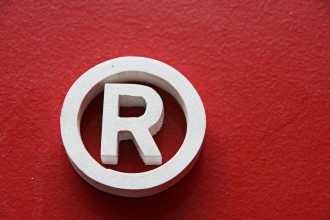
October 27, 2021
Too Late for Brooklyn Brewery to Pursue Brooklyn Brew Shop
In Brooklyn Brewery Corp. v. Brooklyn Brew Shop, LLC, [2020-2277] (October 27, 2021), the Federal Circuit affirmed in part, reversed in part, and remanded in part a complicated cancellation and opposition proceeding brought by the Brewery against the Brew Shop.
Brewery registered BROOKLYN BREWERY for beer in 2006. In 2009, Brew Shop began selling kits for making beer as well as wine and hard cider. Between 2011 and 2015, Brewery and Brew Shop partnered on a number of projects, including the sale of co-branded beer making kits.
In 2011, Brew Shop registered BROOKLYN BREW SHOP for beer making kits. In 2014, Brew Shop applied to register a stylized version of BROOKLYN BREW SHOP for beer making kits, and a wide variety of other products in classes 5 and 32, igniting the dispute. Brewery then sought to cancel Brew Shop’s existing registration and oppose Brew Shop’s pending application.
On appeal, Brew Shop challenged Brewery’s standing to appeal the dismissal of the opposition as to sanitizing preparations. The Federal Circuit agreed, dismissing the appeal for lack of Article III standing.
Brewery contended that the Board erred by failing to enter judgment against Brew Shop on the Class 32 goods (including beer) that it deleted from its application, when it granted Brew Shop’s motion to amend. Section 18 of the Lanham Act, 15 U.S.C. § 1068, gives the Board authority to, among other things, “modify the application or registration by limiting the goods or services specified therein.”
In determining whether to accept a proposed amendment to an identification that, while contested, is otherwise acceptable, the Board looks to see whether several circumstances are satisfied, including that the applicant consents to the entry of judgment on the grounds for opposition with respect to the broader identification of goods. Brewery consented, but the Board did not, however, enter the judgment to which Brew Shop consented. Its failure to do so appears to be inadvertent and is inconsistent with its practice.
The purpose of entering judgment on the deleted goods is to preclude Brew Shop from again seeking to register its mark for the deleted goods. Brew Shop made no argument as to why entry of judgment on the deleted goods would be inappropriate, implying instead that formal entry of judgment is unnecessary, but the Federal Circuit remanded with direction for the Board to enter judgment in favor of Brewery.
On the cancellation of Brew Shop’s registration, the Board denied relief on grounds of laches and acquiescence given Brewery’s delay, and awareness of, and participation in, Brew Shop’s sales of beer making kits. After what the Federal Circuit described as a thorough review of the evidence, the Board concluded that Brewery failed to establish inevitable confusion and dismissed the Section 2(d) claims in both the Cancellation and Registration as to the beer-making kits.
On appeal, Brewery did not argue that the defenses of laches and acquiescence were unavailable, but rather that the Board erred in applying them. In particular, Brewery complained its acquiescence in the first registration, which disclaimed Brooklyn, should not affect the application.
Treating the marks as a whole, the Board found otherwise, and the Federal Circuit agreed.
Even if laches or acquiescence applied, Brewery argued that it overcame the defense by establishing inevitable confusion. The Federal Circuit noted that a showing of inevitable confusion requires that there be no reasonable doubt as to likelihood of confusion.
In the end, the Federal Circuit found no legal error in the Board’s ultimate conclusion that Brewery failed to establish inevitable confusion as to the beer-making kits, and in the Board’s rejection of the likelihood-of-confusion claims.
Brewery also argued that the Board abused its discretion in refusing to consider its geographic descriptiveness claim. However, the Board found that Brewery had not adequately pled the claim and warned that absent an amendment the case would go forward without the primarily geographically descriptive claim, and Brewery never amended its pleadings, so the Federal Circuit agreed with the Board’s refusal to address the claim.
Finally, Brewery argued that it adequately proved Brew Shop’s mark was merely descriptive. The Board found that Brew Shop’s marks would not be perceived by prospective customers seeking brewing supplies and accessories as describing a quality, feature, function, or characteristic of the goods. The Federal Circuit said that descriptiveness is not evaluated “in the abstract,” or broadly as to the class of goods that the applicant sells (brewing supplies), but rather it must be evaluated “in relation to the particular goods for which registration is sought.
The Federal Circuit said that BREW SHOP does not conjure up an image of a “beer-making kit” specifically. One can imagine any number of goods that might be purchased at a “place to buy brewing supplies,” including beer brewing equipment, testing and measuring devices, and beer ingredients. A “beer-making kit” does not immediately come to mind.
The Federal Circuit found that the Board’s conclusion that the presumption of inherent distinctiveness as to the registered mark was not overcome is supported by substantial evidence. The Federal Circuit did find that the Board erred in not considering whether Brew Shops mark had acquired distinctiveness, and remanding for the Board to determine whether Brew Shop had shown acquired distinctiveness.





































